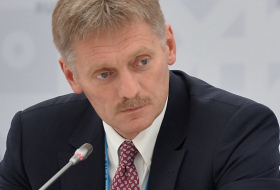Turkish border province ramps up security ahead of Merkel visit

Merkel, along with Tusk and European Commission Vice-President Frans Timmermans, were due to meet Turkish Prime Minister Ahmet Davutoglu to discuss the migration crisis after visiting a refugee camp in the town of Nizi.
On Friday, rockets hit Kilis, to the east of Gaziantep along the Syrian border, killing two and injuring four people. Merkel had been expected to visit Kilis last weekend, but later the location and timing of the visit were changed.
Saturday`s one-day visit comes as Turkey and the European Union try to implement a migrant returns deal with Greece aimed at stopping migrant flows across the Aegean Sea by breaking the smugglers` business model. The legality of the deal has been called into question by rights groups.
The deal, coupled with border closures in Europe that meant smugglers could not secure passage to northern European states, initially slowed the numbers of new arrivals to Greece sharply.
But boats have been arriving with about 150 people a day, indicating the "hermetic sealing" of the route appears to be over, the International Organization for Migration (IOM) said.
A senior Turkish government official said the main focus of the visit by Merkel, Tusk and Timmermans would be on relations with the EU and implementing the migrant deal, including how to spend a promised 3 billion euros ($3.37 billion) in funding.
On Wednesday, Turkey`s Foreign Minister Mevlut Cavusoglu said the European Union needed to be more pragmatic in releasing the cash meant to help manage the migrant crisis, saying there were problems with the delivery of the money.




















-1744366755.jpg&h=190&w=280&zc=1&q=100)


























